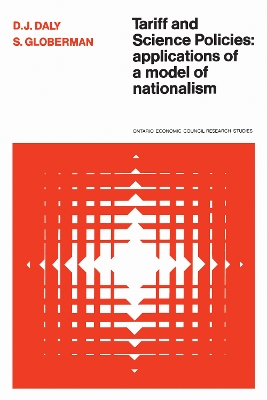This controversial analysis of economic nationalism will interest economists and those concerned with nationalism and the competitive position of Canadian manufacturing. It is the first attempt to test empirically an economic model of nationalism, a model which implies than an emphasis on nationalism ultimately reduces economic efficiency - with low-income groups bearing most of the resultant cost - and redistributes income from lower - to upper-income individuals.
Applying the model to federal commercial and science policies, the authors argue that these policies have contributed to the high costs and low productivity of Canadian manufacturing and retarded the adoption of new processes and improved techniques. They find that the costs of these are borne by the urban workers and the consumer, while the major beneficiaries are Canadian managers, scientists, and engineers. The efficiency and competitive position of Canadian industry are reduced and income redistributed from lower- to upper-income groups.
Science policies designed to increase, at high cost, a broad range of Canadian research and development capabilities are related to the slower adoption of new manufacturing processes in Canada than in the United States and Europe. The authors conclude that greater trade liberalization and increased industrial specialization would benefit Canada and Ontario, that more emphasis should be placed on rapid diffusion of innovation, and that research should be concentrated in fields where Canada has a potential competitive advantage.
- ISBN10 0802033385
- ISBN13 9780802033383
- Publish Date 15 December 1976
- Publish Status Active
- Out of Print 13 May 1999
- Publish Country CA
- Imprint University of Toronto Press
- Format Paperback
- Pages 125
- Language English
